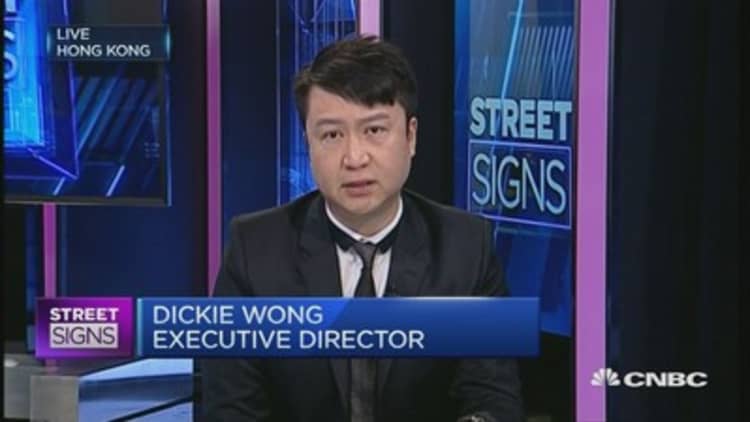


Shares of two mid-sized Chinese lenders that made their debuts on the Stock Exchange of Hong Kong Wednesday traded lower to flat, reflecting investor fears about non-performing loans and bad debt on the mainland.
China Zheshang Bank raised about $1.7 billion in the biggest initial public offering of the year in Hong Kong so far, while Bank of Tianjin's IPO raised another $950 million, with both deals pricing near the bottom of expectations.
"The market response has not been good … a lot of investors are taking the wait-and-see approach (to financial stocks amid the current reporting season). IPO products may not be their choice for the time being," said Ronald Wan, chief executive at Partners Capital International.
Zheshang's cornerstone investors, including Alipay and Yanzhou Coal Mining Co., collectively poured $1 billion into the company, but retail shares were under-subscribed.
By Wednesday afternoon in Asia, Zheshang shares were trading at HK$3.95 versus its IPO price of HK$3.96 after falling to as low as HK$3.93.
Tianjin shares were at HK$7.38 versus its offer price at HK$7.39 after dropping as low as HK$7.33 a share.
It's been a dismal year so far for IPOs globally, with the first quarter being the weakest quarter since 2009 as total capital raised plunged 70 percent from a year ago to $12 billion, according to data from Dealogic and Ernst and Young. Half of the funds raised were in Asia Pacific.
Wan told CNBC's Squawk Box that he is keeping his eyes on the annual results of major Chinese banks this results season, as non-performing loans and bad debts come into focus.
Things are not looking up.
China's Bank of Communications Co. reported on Tuesday that it will be difficult to maintain even 1 percent profit growth this year, Reuters reported. It is the first among China's top five lenders to report earnings.
According to Reuters, BoCom's non-performing loan ratio rose to 1.51 percent by end-December, from 1.42 percent at end-September. At the end of last year, its corporate impaired loan balance rose 30 percent to 44.284 billion yuan.
Jittery investors aside, Zheshang and Tianjian also join a crowded sector on the HKEx.
The bourse is already home to numerous Chinese lenders, including state-owned Bank of China, China Construction Bank and the Agricultural Bank of China.
"There are simply too many Chinese banks in Hong Kong already, so (these shares are) not that attractive at all even if they are even priced at low end with very attractive P/E (price to earnings) multiple and very high yield per annum. They are cheap but every stock is cheap now in Hong Kong, especially commercial lenders," Kingston Securities Executive Director Dickie Wong told CNBC's Street Signs.
"Why choose a smaller one (when) we can get a bigger one," Wong asked.



